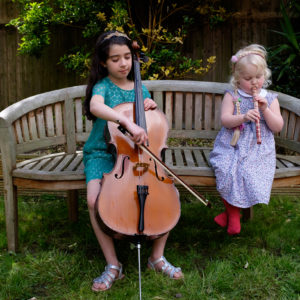AS Discovery Parent Support Group
We are running a series of 6 small group sessions starting in May. Sign up by 14th April 2023.
More information available here
Support for Children and Young People
At Engage Therapy we work from infancy to young adulthood to help with:
- Sleep issues & feeding problems
- Behavioural problems including tantrums
- Shyness, withdrawal and separation anxiety
- Conduct and behaviour problems at home and school
- Neurodevelopmental problems including ADHD and ASD
- School refusal & bullying
- Mood disorders and Depression
- Low self-esteem
- Perfectionism
- Self-harm
- Anxiety problems including – generalised anxiety, panic attacks, obsessive compulsive disorder, phobias, PTSD, Tics
- Family/relationship issues (e.g. coping with parental divorce; Sibling rivalry; Pre- and Post- adoption support; Life story work)
- School-based difficulties (e.g. peer relationships, bullying, social media issues, attendance, examination stress/anxiety)
- Adaptation to life events (e.g. the arrival of siblings, divorce, bereavement, chronic illness)
- Assessment and behavioural management of Autism and Asperger’s Syndrome
Support for Parents
- Birth preparation
- Postnatal depression & birth trauma
- Bonding and attachment difficulties
- Coping with pregnancy and a new baby
- Sleep issues & feeding problems including fussy eating
- Temper tantrums
- Toileting issues
- Managing behavioural problems and parenting advice and support
- Family/relationship issues (e.g. Parental separation or divorce; Parental depression; Parent-child relationship difficulties, sibling rivalry)
- Couples therapy
How It Works
First meeting
When we first meet we will get a detailed understanding of your concerns about your child as well as some background information. This will help us choose the therapy that will best suit your needs.
Individual therapy
Therapy with young children is playful using drawings and toys to help express feelings. Parents are present for these sessions to support the young person in the session and at home.
Therapy with adolescents and parents involves talking and learning relevant strategies to solve problems. When meeting with an older child or adolescent we usually meet without the parent who is kept involved and updated at review sessions.
Often the therapy will involve things to try between sessions. This allows people to take control of their own wellbeing and enhances progress more quickly. The length of therapy varies according to needs and the severity of the problem. This will be regularly reviewed with you.
Confidentiality
The meetings are strictly confidential, within the boundaries of safeguarding (i.e. unless I am concerned that you or other people are in immediate danger).
We keep written records of sessions. This information is securely kept and solely for the therapist’s use. The details will not be passed onto anyone else without your permission.
We may discuss aspects of our work with colleagues during professional supervision but will keep identifying details anonymous.
Assessments
Sometimes further assessment is needed before we begin therapy. There are various types of assessments which may include an observation of your child in their school, nursery, or home as well as input from other professionals and/or the use of psychological testing. You will be consulted about this process before any information is requested or shared with third parties.

Specialist Social Communication (ASD) and ADHD Assessments
We conduct diagnostic assessments for social communication difficulties such as Autism Spectrum Disorder (ASD) or Attention and / or Hyperactivity (ADHD) difficulties. This includes an initial assessment with parents; observation of the young person at school or nursery; and standardised assessments with other highly experienced colleagues.
We also provide post-diagnosis support for both these conditions including education around ASD/ADHD, behavioural interventions for specific behavioural difficulties (e.g., aggression towards others, self-injurious behaviour, repetitive/ritualistic behaviours), psychological therapy for additional emotional difficulties such as anxiety or depression using Cognitive Behavioural Therapy and family support.

